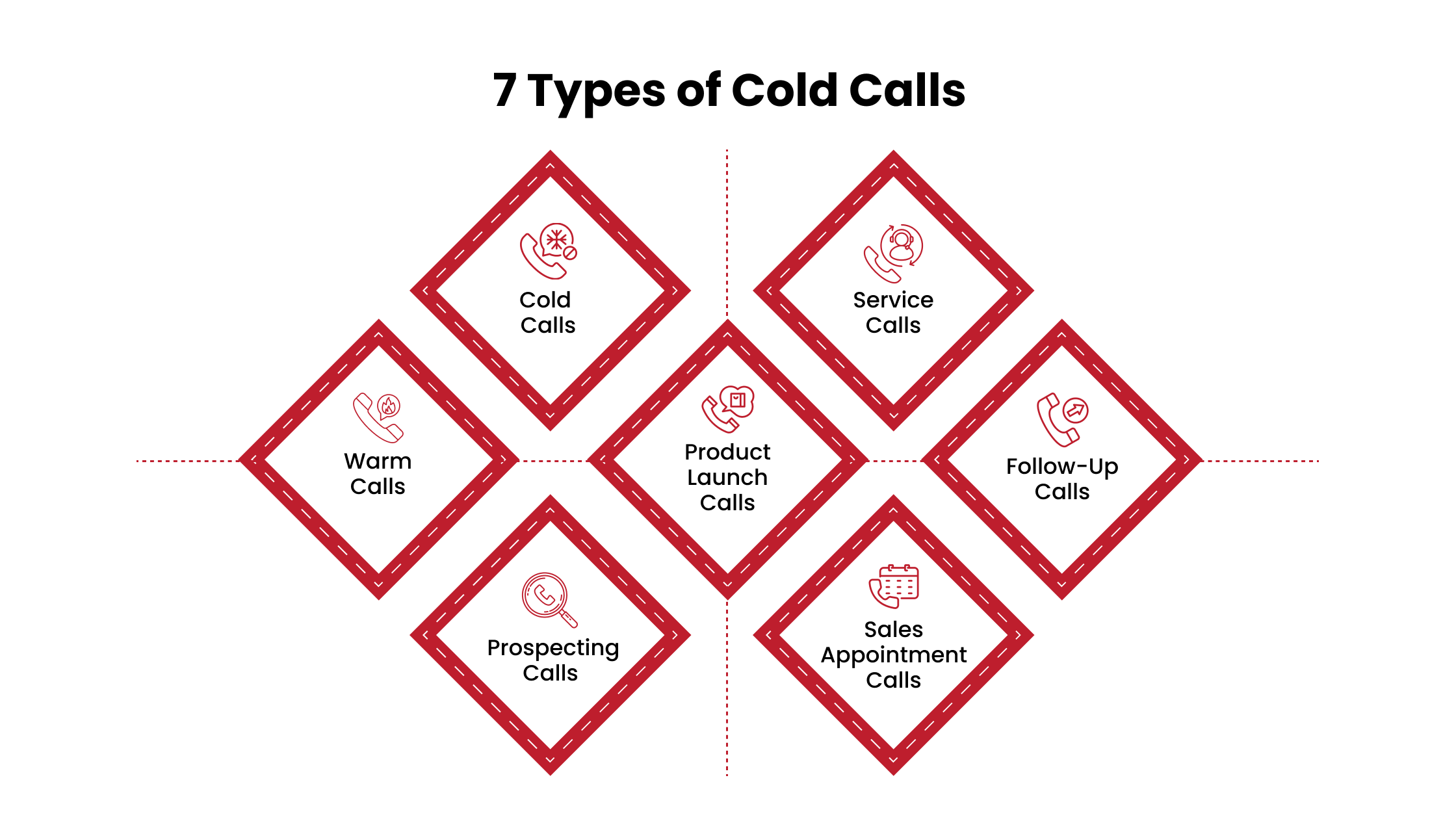Crafting the Perfect Cold Call Script for Car Dealership Sales

“Cold Calling is Hard” – Everyone Ever (Probably)
Are your cold call scripts connecting but fizzling out before the real engagement begins? Maybe you’ve mastered the art of talking specs and features like a pro but struggle to spark enough interest to get customers through the dealership doors. Worry not! If you feel like your car sales cold call script is missing that extra spark—the charisma, the wow factor, or the closing punch—don’t sweat it.
The good news is this is a skill you can absolutely learn. We’re here to help you turn those lackluster sales call scripts into conversations that convert.
In this blog, we’ll walk you through actionable tips to craft a knockout cold call sales script and explore different types of cold calls to help you up your game in 2024. So, are you ready to transform your cold call best practices from “meh” to “magnificent”? If yes, then read on.
Why Cold Calling Still Matters in Car Sales?
While digital marketing avenues like social media and email campaigns have taken center stage in modern sales strategies, cold calling—specifically with an optimized car sales phone script—remains indispensable for establishing contact with potential customers who haven’t yet engaged with your dealership. It’s a proactive way to reach out to individuals who might not even know their need for your services.
Interestingly, research indicates that a significant portion of buyers — 49%, according to Zippia —prefer initial contact via a cold call script. This suggests that prospects may be more receptive to cold call sales scripts than one might assume, underscoring their continued relevance as a strategy for tapping into a pool of untapped potential customers. Furthermore, 82% of buyers report having accepted a meeting following a well-devised sales phone call script, demonstrating that cold calling can yield substantial results with a thoughtful approach.
Outbound Calls Are Getting Harder – Here’s Why
Cold calling is becoming increasingly difficult as fewer people answer calls from unfamiliar numbers. In 2007, it took about 3.68 attempts to reach a prospect via cold call. Fast forward to 2024, and that number has more than doubled to 8 attempts, according to a study by ZoomInfo. This uptick in effort is largely due to caller ID features, spam filters, and changing consumer behaviors.
Additionally, 62% of companies report that the data they use for prospecting is 20% to 40% incomplete or outdated, making it even more challenging to reach the right people. However, focusing on cleaner, accurate data and referral-based cold call templates can mitigate these issues. According to ZoomInfo, businesses that practice routine data hygiene generate 700% more inquiries and 400% more leads than those that don’t.
A well-crafted cold call phone script is the initial bridge between your dealership and a potential customer. They spark that crucial first point of contact, paving the way for deeper conversations and successful sales.
Cold Calling: Overcoming Its Bad Reputation
Cold calling gets a bad rap, especially in the automotive industry. This reputation is largely justified. Most businesses make the wrong types of calls and do not see the return on their investment. A cold call is any call made to a potential customer without that customer first acknowledging that they are in the market for that product. This broad definition includes hundreds of different varieties of calls.
It’s important to note that there is a complete difference between making a call to a referral and calling a random name on a list. These are classified as cold calls but not the same – some outbound calls are colder than others.
We recommend focusing on outbound calls to prospects connected to existing customers or dealership staff. Calling referrals and past customers are examples of these “less cold” calls. Outbound calls are challenging enough, so there’s no reason to make them harder by targeting leads that will likely yield minimal results.
7 Types of Cold Calls (And When to Use Them)

Cold calling is essential to the sales process, but not all cold call scripts are created equal. Understanding the different cold call sales script types can help you modify your approach to better connect with potential customers. Below are seven types of cold calls every sales professional should know, along with real-time stats to help you optimize your cold calling best practices in 2024.
1. Cold Calls
Cold calls are the classic “introductory call,” where you reach out to potential customers with little to no prior interaction. It’s all about making that first impression. The key here is to quickly communicate your value proposition and keep the prospect engaged long enough to explore their needs. Moreover, 48% of sales reps are afraid to make cold calls, yet cold calling is more effective than email outreach. This emphasizes the need for a cold call script that hooks prospects early.
2. Warm Calls
Warm calls are made to contacts who have already shown interest in your product or service, whether through a previous interaction, visiting your website, or downloading your content. Since these prospects are familiar with your brand, they tend to have a higher engagement rate. In fact, warm calls are 20-30% more likely to result in a conversation than cold calls because the prospect already has a touchpoint with your company, making it easier to use your car sales cold call script effectively.
3. Prospecting Calls
The goal of a prospecting call is to identify new potential customers. You’re not necessarily looking to make a sale immediately but rather to qualify leads and gather useful information for future interactions. These calls help build your pipeline by identifying prospects that could be nurtured over time.
4. Sales Appointment Calls
A sales appointment call moves the prospect to the next stage of the sales funnel. These calls aim to schedule a meeting to discuss their needs in more detail and tailor a specific solution. It’s about building rapport and laying the groundwork for a more in-depth conversation.
5. Follow-Up Calls
After a sales interaction or product demo, follow-up calls are crucial to keep the conversation going. These calls are used to answer any lingering questions, address objections, and move the prospect closer to making a decision.
6. Service Calls
Service calls focus on existing customers and their current needs, helping to maintain strong relationships by ensuring satisfaction with their purchase, resolving any issues, and potentially upselling or cross-selling other products or services. Given that a mere 5% increase in customer retention can lead to a 25% to 95% boost in profits, service calls become an indispensable part of any sales phone call script, making them essential for long-term success.
7. Product Launch Calls
When your company rolls out a new product or service, product launch calls help inform existing customers and encourage them to explore new offerings. These calls are especially effective when combined with special offers or limited-time promotions.
Moreover, making the right types of outbound calls helps alleviate some of these problems. For example, referral information comes directly from the customer and was probably obtained relatively recently, meaning the contact information is significantly more likely to be accurate.
Several tools will automatically verify information in your database through confirmation with the customer and by comparing it to their database. This is critical as companies that employ consistent data hygiene create about 700% of inquiries and roughly 400% more leads than those that do not.
Outbound Calls Are Getting Harder
According to ZoomInfo, in 2007 it took an average of 3.68 cold call attempts to reach a prospect. Today it takes 8 attempts. On top of that, 62% of organizations rely on marketing or prospect data that is 20%-40% incomplete or inaccurate. This means it’s getting more difficult to reach prospects and, once they do get in touch, most businesses are pulling from a database that isn’t very accurate.
Making the right types of outbound calls helps alleviate some of these problems. For example, referral information comes directly from the customer and was probably obtained relatively recently, meaning the contact information is significantly more likely to be accurate. There are several tools that will automatically verify information in your database through confirmation with the customer and by comparing the information to their own database. This is critical as companies that employ consistent data hygiene create about 700% the number of inquiries and roughly 400% the number of leads than those who do not.
Calling the Referral and Other Basics
Calling referrals is easier than it seems but it can cause a myriad of problems if it’s mismanaged. Be careful not to come off too strong by opening with something like
“Bill tells me you’re looking for a car/in the market/looking to purchase…”
The referral might complain “Why did they give you my name?” This bad reaction may also cause you to lose your referral source as a future customer.
Try this instead:
“Hello (customer name)”
“Did I get you at a bad time?”
“This is (your name) from (dealership name)”
“The reason I’m calling, (referral’s name), is that I recently had the opportunity to help a friend/coworker/neighbor of yours, (customer’s name), with the purchase of a (vehicle). Have you seen their (vehicle)?”
“Well, (referral’s name), I get most of my business from repeats and referrals, from people just like you and (customer’s name). I didn’t call you to put you on the spot, and I would never put (customer’s name) on the spot, he/she’s a good customer, but as we were talking, your name came up as someone who, one of these days, might possibly consider some type of vehicle for themselves. Could that be true?”
Follow up with:
“That’s a great place to start.” Or, “You picked a great time to consider…”
Continue with the 10 Steps to a Quality Conversation (Steps 8-10) from the Guaranteed Sales Success Manual.
Calling Previous Customers & Data Mining
If the last time a previous customer heard from you was as they were leaving the showroom over 12 months ago, they are immediately going to put their guard up expecting you to sell them something. Data mining calls are undoubtedly easier when there have been several attempts to follow-up and maintain the relationship. Calling the customer to thank them for a referral or see how they like their vehicle are easy ways to maintain the relationship and keep your database up to date.
Here are our top data mining calls for these past customers:
- Lower Your Payment
- In Equity
- End Finance/Lease Term
- Lease Over Mileage
- Service No Purchase
- Service Contracts
- No Service in X Months
- Declined Service
- Cash
- We Want Your Trade
The Best Cold Call Script for Dealerships
The best cold call script is one that is tailored to fit the customer you are going to call and creates value for them. We have included three example data mining scripts for download. Enter your name and email below to download the following three scripts: Zero Flip/Equity Call, Finance Termination & Friends & Acquaintances.
However, if you need more hands-on training for your team with car dealership cold-calling scripts, then Automotive Training Network can help!
Convert Perfect Cold Calls into Big Sales with ATN

Building on these foundational cold-calling tips is essential, but even the most skilled sales professionals benefit from structured, ongoing training. That’s where the Automotive Training Network comes into play. A well-trained and knowledgeable sales team is the backbone of any successful automotive dealership. ATN can be your trusted partner in empowering your team to excel at every step of the automotive sales process, from fostering authentic customer relationships to closing deals confidently.
A strong and skilled sales team is essential for any thriving automotive dealership. The Automotive Training Network can be your reliable partner in helping your team improve at every stage of the sales process, from building genuine customer relationships to confidently closing sales.
With 40 years of experience in the industry, ATN offers a wide array of training options tailored to the specific needs of your dealership, including:
Our practical, data-driven methods equip your sales team with the latest industry knowledge and effective strategies, all customized for your dealership’s objectives.
Discover the significant benefits of ATN’s professional training on your team and overall dealership performance.
